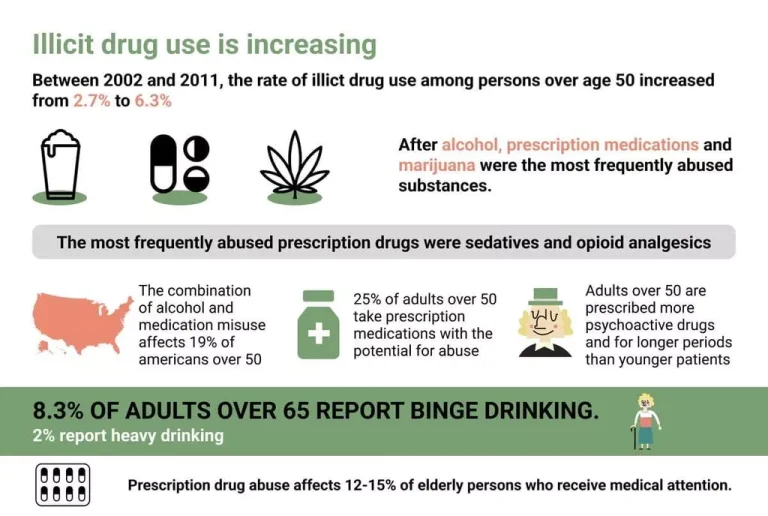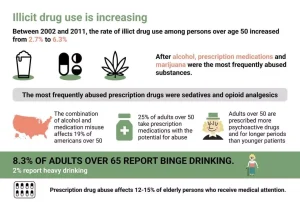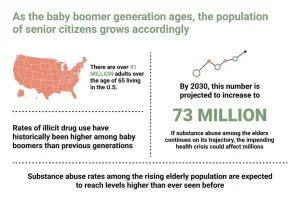
Quitting cold turkey can come with some severe withdrawal symptoms, and it can be dangerous. Alcohol withdrawal seizures typically aren’t deadly on their own, but they can lead to dangerous complications. If you’re in a standing position or around dangerous objects, a seizure can cause a potentially fatal accident or injury. Along with alcohol’s other effects on your heart, you could experience dangerous heart-related symptoms, such as stroke or cardiac arrest. Symptoms such as seizures and delirium tremens (DTs) require immediate medical attention.
- You may be given anxiolytic and sedative medications to help overcome the anxiety and insomnia that is common with alcohol withdrawal.
- Each provides different levels of support depending on your symptoms and specific risk factors.
- Getting professional help for managing anxiety and depression can also substantially improve your quality of life.
How to Get Rid of Performance Anxiety in the Workplace: Boost Confidence and Productivity

As a general rule, the longer you have been drinking over time and the more you drink, the higher your risk for developing withdrawal symptoms, which may include seizures. Alcohol withdrawal can trigger seizures and people with epilepsy are at a higher risk of experiencing alcohol seizures. Such individuals are at a particularly high risk of seizures after consuming large amounts of alcohol in a short period of time (for example, 2-3 drinks over 2-3 hours). In people with epilepsy, binge drinking can even trigger status epilepticus, a potentially life-threatening prolonged seizure that lasts more than 5 minutes. When people talk about alcohol seizures, they usually mean alcohol withdrawal seizures. These are seizures (convulsions) that can occur 6 to 72 hours after a person with alcohol use disorder stops drinking or significantly reduces their alcohol intake.
- If the answer is “yes” to any of these, it’s important to talk to a healthcare provider before attempting withdrawal on your own.
- People with a long history of heavy alcohol use are more likely to suffer severe withdrawal effects, including alcohol seizures.
- Therapeutic approaches provide strategies to cope with cravings, develop healthier habits, and tackle underlying issues contributing to heavy alcohol use.
- Over time, the central nervous system adapts to alcohol’s depressant effects by increasing activity in certain neurotransmitter systems to maintain balance.
Success Rates with Professional Help
- When your body develops chemical dependence on alcohol, it adapts to a consistent chemical balance change over time.
- Ethanol, the active ingredient in alcoholic beverages, acts as a CNS depressant.
- In other words, there may be a link between chronic alcohol use (alcoholism) and epilepsy risk.
- The aura stage can involve the early stages of a seizure or another warning sign that a seizure is coming.
Below, you’ll learn more about seizures, how they can be linked to alcohol use, abuse and alcoholism, and how to know whether you or someone you love might be addicted to alcohol. But treatment Drug rehabilitation varies based on the severity of alcohol withdrawal and the likelihood that it could progress to severe or complicated withdrawal. When you stop consuming alcohol after prolonged, heavy use, your CNS can’t respond or regulate itself fast enough. Status epilepticus is a life threatening condition in which a person has a seizure lasting longer than 5 minutes without regaining normal consciousness or has more than one seizure within 5 minutes. Unprovoked seizures that occur more than 48 hours after a person’s last drink may be due to another cause, such as head injury or withdrawal from other drugs. This article looks at the connection between alcohol, seizures, and epilepsy, as well as treatment options and support.

The Link Between Alcohol and Epilepsy

Alcohol withdrawal symptoms can last from a few days to a week or more, depending on the severity of the addiction and individual factors. General symptoms usually peak within alcohol withdrawal seizure 24 to 72 hours but can persist in some form for several weeks. Alcohol withdrawal symptoms occur as the body adjusts to a sudden decline in the chemicals that are components of alcohol. Additionally, as alcohol is broken down and removed from the body, certain chemical toxins produce inflammation and oxidative stress.

The main concern over the development of delirium tremens during alcohol withdrawal is the threat of mortality that comes with it. Delirium tremens is estimated to come with a 35% risk of death if you go through it without treatment. Depressants like alcohol can cause your muscles to relax, but withdrawal can cause tremors, muscle tightness, and seizures. Alcohol withdrawal seizures are similar to tonic-clonic seizures, which are often seen with issues like epilepsy. The first may involve a loss of consciousness with increased muscle rigidity.
- These can progress to moderate symptoms like increased blood pressure and hallucinations.
- The process of withdrawing from alcohol carries substantial dangers, including potentially life-threatening conditions.
- Alcohol is the common name for drinking alcohol, but it’s actually a specific chemical in a broad category of chemicals called alcohol.
